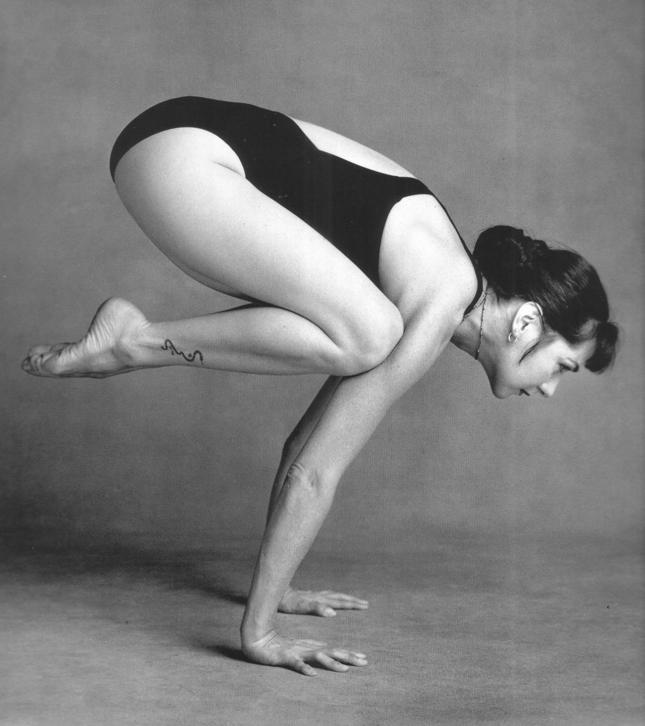Spring Cleaning: Sprucing Up Your Heart, Mind and Soul
By • July 26, 2011 0 1443

Spring is the time of year I make an assessment of my life, my achievements, my mistakes, and how my life is going overall. Spring sends my spirit soaring, sharpens my senses, and forces an evaluation of my life and my health. And while there is so much to be grateful for, improvements need to be made as well.
I know, tradition says you make those evaluations at the new year. But I really don’t feel that sense of urgency for change until I can open my windows, hear the birds chirping, see daffodils sprouting (and perhaps, notice my belly has been expanding during the winter months… OOPS! We’ll talk about that later).
For the spiritual or religious among us, springtime means Lent: a time for reflection and change. “Lent is spiritual calisthenics; forty days to exercise self-discipline. This hard work transforms us toward a deeper respect for God, love for our brothers and sisters, and reverence for all creation for the entirety of the year,” says Rev. Dr. Albert Scariato, Rector, St. John’s Episcopal Georgetown Parish.
For the non-religious, spring can be an important time for reflection as well. We live in a society where a multitude of distractions keep us from serious personal work, self-reflection and improvement, close relationships, physical activity and healthy food. In order to thrive in this crazy, multi-tasking, often violent and unhealthy world, the first step is “mindfulness.”
“There are many health benefits to being more mindful,” says Jack Killen, MD, Deputy Director of the National Institutes of Health’s National Center for Complementary and Alternative Medicine. The following are excerpts from a recent interview:
Katherine: What is mindfulness?
Dr. Killen: Mindfulness is the ability to be present, more focused and clear; for concentration to be more sustained, and for attention to be on what’s happening, instead of on thoughts, memories, and associations.
Katherine: Why is it important to be mindful? What are some scientifically proven benefits?
Dr. Killen: There is neurobiological research demonstrating that mindfulness engages pathways in the brain associated with emotion and impulse control, attention, and focusing. It allows your brain to be focused on what is here and now so you are better able to respond to situations appropriately. People who are more mindful are better able to handle emotional situations in more appropriate ways, are more able to think through a problem, are less likely to be distracted by issues that won’t help…There is evidence that you improve at mental tests, that emotion regulation is better and more appropriate, blood pressure is lower and stress hormones are lower, thereby reducing stress.
Katherine: How can one become more mindful? I understand prayer or meditation may be helpful?
Dr. Killen: There is a lot of evidence accumulating that meditation in all of its forms has beneficial physiological effects. Meditation is a way of exercising neurological pathways in the brain, which help us become more mindful. But it is a bit like going to the gym and working out your muscles, it takes time and practice for the beneficial brain pathways to become established, similar to building muscular strength and flexibility.
Katherine: What are some examples of meditation that may have these kinds of emotional and behavioral benefits?
Dr. Killen: There are many ways you can train your mind to be more mindful. The jury is still out as to whether one is better than another. More likely, certain types of meditation will work well for certain people, and other kinds for other people. We are still working on how to measure and study meditation.
There are several types of meditation. “Mantra” meditation is repeating a phrase, or something with deep meaning over and over, or focusing on a candle, for instance. “Mindfulness” meditation is focusing on what is happening now instead of on thoughts, memories, and associations.
Katherine: Are yoga, tai chi, and other forms of exercise considered good ways to achieve mindfulness?
Dr. Killen: While mind/body interventions are difficult to research, there is some encouraging data. Yoga and meditation are intertwined in many ways. Studies suggest yoga is useful in increasing lung capacity, improving mood, wellbeing, posture, and there are similar benefits with Tai Chi. But there is a larger body of research on meditation and its benefits.
Katherine: Is there scientific evidence that these mind/body interventions such as meditation or yoga will promote healthier lifestyles?
Dr. Killen: This is what we are studying at the Center for Complementary and Alternative Medicine. Getting definitive answers to those questions through rigorous scientific research could make these kinds of health interventions more widely available. Important work going on right now is defining research methods. We need to understand, for instance, which yoga postures benefit your health and in what specific ways. If we want to make health interventions more widely available and accepted, we need to be able to describe their effects better, thus magnifying their benefits. We are currently studying if these mind-body interventions are a means to help people with metabolic syndrome, if they’d be useful in weight-control programs, helping people eat less, or more healthfully.
In “Mindfulness in Eating and Living Part II,” I will further investigate mindfulness, clarify methods for achieving mindfulness, and how you can use it to improve your health and your life. In the meantime, read “How to Beat Emotional Eating,” in Diet Simple. Stay tuned!
Katherine Tallmadge, M.A., R.D., is passionate about helping people transform their health and their lives. Her book, Diet Simple, called the “Un-Diet” by The Washington Post, and “The only good nutritionally balanced and easy-to-follow diet book” by Good Housekeeping Magazine, is about losing weight without dieting. KatherineTallmadge.com

